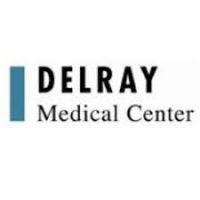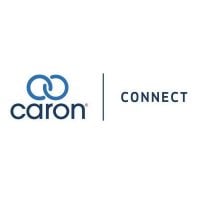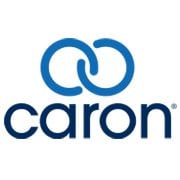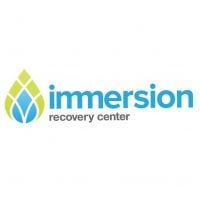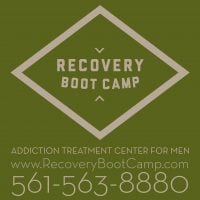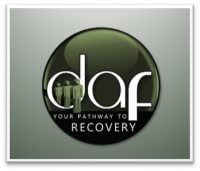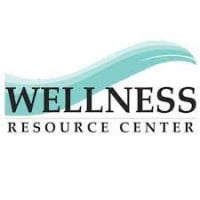Delray Medical Center - Fair Oaks Pavilion
Drug Rehab Center in Delray Beach, Florida
Delray Medical Center - Fair Oaks Pavilion is an accredited addiction and dual-diagnosis treatment facility in Delray Beach, FL that offers comprehensive personalized care including detox, inpatient care, residential long term care, aftercare support, and various therapies to help patients achieve long-term sobriety.
About Delray Medical Center - Fair Oaks Pavilion in Florida
Delray Medical Center - Fair Oaks Pavilion is an accredited 53-bed facility in Delray Beach, FL that specializes in treating addiction and dual-diagnosis issues. Its commitment to providing comprehensive personalized care has enabled the center to provide effective treatment programs. Their comprehensive treatment offerings include detox, inpatient care, residential long term care, aftercare support and various therapies such as animal therapy, couples therapy, electroconvulsive therapy, family therapy, group therapy, individual therapy, life skills, motivational interviewing, recreational therapy, and trauma therapy.
The center is dedicated to helping individuals achieve long-term sobriety, with their team of mental health and addiction specialists offering a supportive environment and the proven therapies needed to guide each patient on their road to recovery. Delray Medical Center - Fair Oaks Pavilion accepts private health insurance and provides a safe, secure and comfortable setting for treatment and recovery. For those who are committed to overcoming their addiction and achieving a better life, Delray Medical Center - Fair Oaks Pavilion offers a quality, compassionate approach to recovery.
Genders
Ages
Modality
Additional
Accreditations
State License
SAMHSA

JCAHO
Conditions and Issues Treated
Opioid addiction starts when a person becomes addicted to legal or illegal opioids. The addiction can happen quickly, in just a matter of days. Opioid withdrawal can be extremely uncomfortable and lead the user to continue to use even if they want to quit. Stopping using an opioid requires medical observation. Sometimes inpatient treatment with a medically supervised detox is necessary for managing the withdrawal process while learning lasting tools for maintaining recovery. Medications may be used in some cases of opioid addiction.
Opioid addiction is one of Florida‘s most prominent forms of addiction. It’s treated by detoxifying the body so that the chemicals from the medications no longer impact them and by therapies to correct behavior and target the root of the problem.
Recovery is not simply about stopping drug use. Recovery is working with addiction while recovering mental health issues that are fueling the addiction in the first place.
Levels of Care Offered
This center offers a variety of custom treatment tailored to individual recovery. Currently available are Aftercare Support, Detox, Drug Rehab, Dual-Diagnosis, Inpatient, with additional therapies available as listed below.
Detox is the first step of rehab. It involves giving a person time to get the toxins out of their body. During detox, the patient gets ill and they will often start using again to get rid of these unpleasant feelings. That’s why it’s so important to have a Delray Beach medical professional at Delray Medical Center - Fair Oaks Pavilion present. A Florida medical professional will make sure patients don’t start using during detox. They will also provide medication to ease their symptoms and coach them through on a mental level.
Individuals who are suffering from severe addiction or have a high risk for dangerous health concerns are often recommended to receive inpatient treatment.
Choosing to enter an inpatient treatment program is beneficial for people who are suffering from severe addiction, or who have a high risk for dangerous health concerns.
Inpatient treatment is beneficial for:
- People who have a history of severe withdrawal.
- People who have attempted to overcome addiction on their own without success.
- People who have a history of relapse, or have recently relapsed.
- People at risk for drug overdose or withdrawal-related complications.
- People with medical conditions that are worsened by drug or alcohol use.
Aftercare support should take place after outpatient treatment has ended. There are a few different types of aftercare support that patients can seek. These include 12 Step, Self-help groups (AA, NA), Therapeutic communities, Long-term, structured sober living arrangements, and Halfway houses (residential treatment centers).
Therapies & Programs
Individual therapy involves one-on-one sessions between the patient and therapist. It provides patients with a safe environment to openly discuss personal and sensitive issues with the therapist. They find the therapist as someone they can trust. Individual therapy aims to identify the core issues that would have led the patient to substance abuse and address them effectively. The therapist can develop patient-specific customized solutions through individual therapy, which aids speedier recovery.
Couples therapy works with clients and significant others in a professional capacity to improve relationship dynamics. This can be helpful for addicts who are trying to marry the idea of recovery into their work, family, social lives – any aspect that has to do with relationships.
Through counseling sessions, addicts will have an opportunity to talk about their addiction with professional partners. These partners can offer feedback and advice on how to get sober while keeping healthy relationships intact. A good couples therapist will help addicts understand their part in an unhealthy relationship dynamic or find ways to deal with anger or resentment from significant others outside of the home.
Family therapy is a group problem-solving that aims to improve communication and relationships between the addict, their family, and sometimes friends. The main goal of family therapy for drug addiction is to create an environment where communication can occur without judgment, hostility, or blame. The therapist is with the family as they learn to communicate differently, especially with the addict when s/he is using. The family can learn to reduce their enabling behavior or rally together and support each other during tough times.
An addict’s family can play a vital part in helping them to avoid relapse because they can spot the warning signs and help them get back on track before it becomes too much of a problem. Family therapy is one of the most effective ways to help addicts stay on the path to long-term sobriety. When a drug addict decides that they want to try and get sober, it takes the support of every person they love to succeed. It can be incredibly difficult for loved ones to watch an addict go through the pain and suffering of withdrawal, but by being there with them and supporting them, they can help to make sure that the addiction never returns.
Groups typically involve meetings with other recovering addicts who can relate to one another’s experiences. They might meet in person or online and typically focus on the process of staying sober rather than overcoming a specific addiction.
In these groups managed by Delray Medical Center - Fair Oaks Pavilion, addicts can build a sense of community and develop strong emotional connections with others who understand what they are going through. These beneficial relationships can help addicts overcome their cravings and prevent relapse at any point during the recovery process.
In general, trauma therapy is a clinical process that helps individuals deal with mental stress often caused by traumatic events. The therapist helps the person identify, understand, and work through the problem. This is done with the help of talking about it in group or one-on-one counseling sessions. Therapists use relaxation, role-playing, art, and music to help the person open up about what is bothering them.
There are many different types of trauma therapists, such as psychiatric nurses and counselors. Not everyone is a good candidate for this type of therapy; it is generally reserved for people who have recently experienced a traumatic event and struggle to get over it. It is often done for children, teenage victims of sexual assault, and war veterans.
Since addiction is a chronic physical and mental illness, addicts need to learn as many life skills as possible. Many drug treatment centers offer life skills activities as part of their addiction recovery programs. Examples include cooking classes, employment training, resume writing seminars, parenting classes, and computer training. Life skills activities help addicts find employment, take care of their families, and give back to the community.
Payment Options Accepted
For specific insurance or payment methods please contact us.
Is your insurance accepted?
Ask an expert, call (888) 674-0062
Additional Details
Specifics, location, and helpful extra information.
Delray Beach, Florida 33484 Phone Number(561) 495-1000 Meta DetailsUpdated November 25, 2023
Staff Verified
Delray Medical Center - Fair Oaks Pavilion Patient Reviews
There are no reviews yet. Be the first one to write one.
Delray Beach, Florida Addiction Information
Florida is one of the nation's epicenters for substance abuse and drug-related overdoses. In 2014, around 410,000 Florida residents were addicted to drugs and alcohol. Over the last 10 years, 12% of all deaths in the state were attributed to substance abuse. Treatment admissions for alcohol reached 24,329 patients in 2016, and 2.5% of Florida high school students admitted to using crack cocaine.
8.9% of Delray Beach residents aged 12 and older reported using illicit drugs in 2015. The most common drugs used are marijuana, cocaine, and prescription drugs. There are about 9,000 people who abuse or are dependent on drugs in the city. In Delray Beach, there were 1,378 drug-related arrests in 2016. Some of the most commonly used treatments include inpatient rehab, outpatient rehab, and Narcotics Anonymous meetings.
Treatment in Nearby Cities
- Winter Haven, FL (147.5 mi.)
- North Fort Myers, FL (109.5 mi.)
- Palatka, FL (240.5 mi.)
- Immokalee, FL (79.8 mi.)
- Shenandoah, FL (47.2 mi.)
Centers near Delray Medical Center - Fair Oaks Pavilion
The facility name, logo and brand are the property and registered trademarks of Delray Medical Center - Fair Oaks Pavilion, and are being used for identification and informational purposes only. Use of these names, logos and brands shall not imply endorsement. RehabNow.org is not affiliated with or sponsored by Delray Medical Center - Fair Oaks Pavilion.
